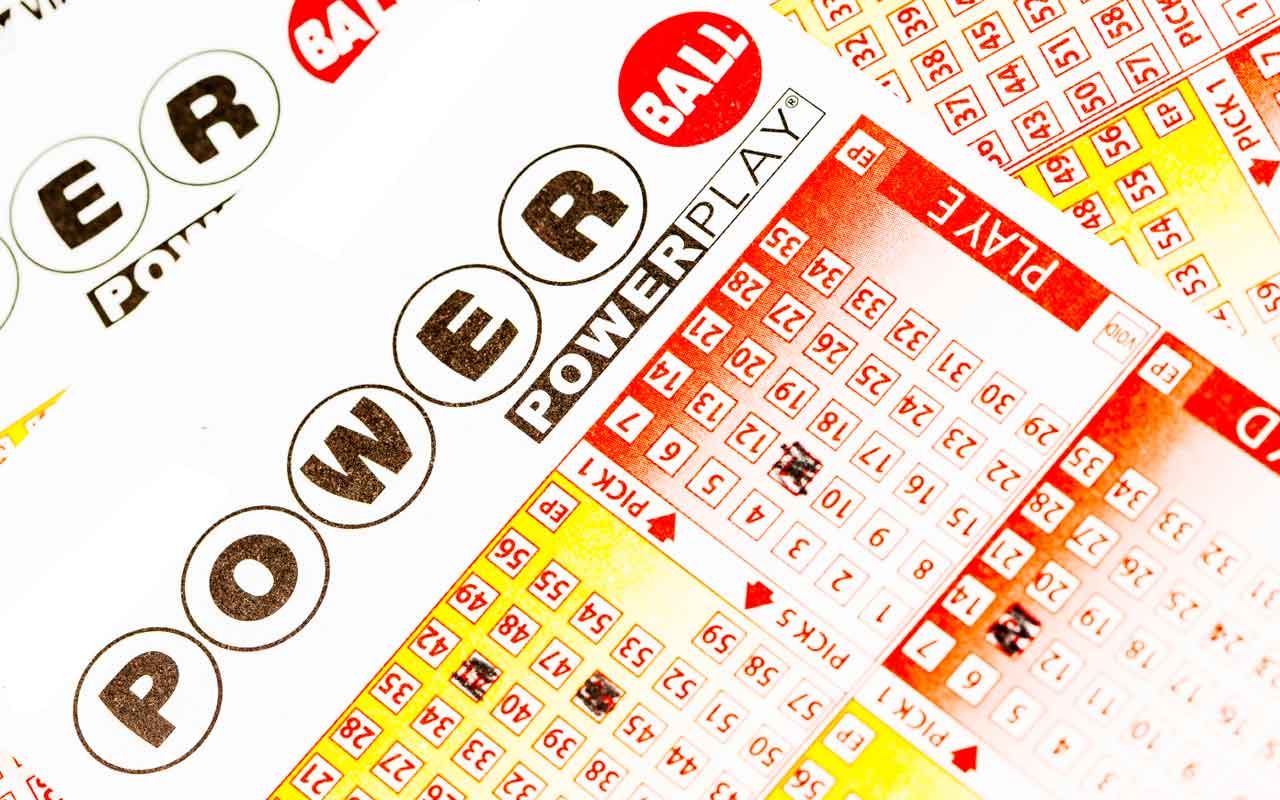Why You Should Monitor Your Elderly Parents' Mail
Scams aren't the only thing to watch for. Pleas for cash from legitimate organizations can be just as dangerous to your parents' bank account.

Profit and prosper with the best of Kiplinger's advice on investing, taxes, retirement, personal finance and much more. Delivered daily. Enter your email in the box and click Sign Me Up.
You are now subscribed
Your newsletter sign-up was successful
Want to add more newsletters?

Delivered daily
Kiplinger Today
Profit and prosper with the best of Kiplinger's advice on investing, taxes, retirement, personal finance and much more delivered daily. Smart money moves start here.

Sent five days a week
Kiplinger A Step Ahead
Get practical help to make better financial decisions in your everyday life, from spending to savings on top deals.

Delivered daily
Kiplinger Closing Bell
Get today's biggest financial and investing headlines delivered to your inbox every day the U.S. stock market is open.

Sent twice a week
Kiplinger Adviser Intel
Financial pros across the country share best practices and fresh tactics to preserve and grow your wealth.

Delivered weekly
Kiplinger Tax Tips
Trim your federal and state tax bills with practical tax-planning and tax-cutting strategies.

Sent twice a week
Kiplinger Retirement Tips
Your twice-a-week guide to planning and enjoying a financially secure and richly rewarding retirement

Sent bimonthly.
Kiplinger Adviser Angle
Insights for advisers, wealth managers and other financial professionals.

Sent twice a week
Kiplinger Investing Weekly
Your twice-a-week roundup of promising stocks, funds, companies and industries you should consider, ones you should avoid, and why.

Sent weekly for six weeks
Kiplinger Invest for Retirement
Your step-by-step six-part series on how to invest for retirement, from devising a successful strategy to exactly which investments to choose.
I wrote about managing your parents' money when they no longer can in the February issue of Kiplinger's Personal Finance magazine. One of my suggestions was to monitor their mail to help protect them from financial scams. I want to elaborate on that today.
My mother has dementia and lives with me, which makes it easy for me to check her mail daily. She regularly gets donation solicitations that I usually toss in the trash without even opening the envelopes. But I decided to collect them over the past week to see exactly what she was receiving and how much money she was being asked to give.
From Monday, August 8, through today, August 12, she received 13 letters asking her for money. I'm pretty sure it was a slow week. But compared with how many financial solicitations I got in the mail over that same period -- ZERO -- she was inundated with requests for donations. And these weren't from con artists trying to scam her. They were from legally registered charitable organizations, lobbying groups and political parties.
From just $107.88 $24.99 for Kiplinger Personal Finance
Become a smarter, better informed investor. Subscribe from just $107.88 $24.99, plus get up to 4 Special Issues

Sign up for Kiplinger’s Free Newsletters
Profit and prosper with the best of expert advice on investing, taxes, retirement, personal finance and more - straight to your e-mail.
Profit and prosper with the best of expert advice - straight to your e-mail.
And if my mom had made the minimum donation requested by each group, she would've been out $192.90 in just one week. That would add up to more than $10,000 if she wrote checks at that pace for a year.
Although I urged readers of my February magazine article to watch their parents' mail to protect them from scams, the point I'm trying to make now is that the elderly could also easily deplete their bank accounts by responding to legitimate (if you want to call them that) requests for money.
Because these requests often are for small amounts ($10, $15 or $25) and are for causes that affect seniors (save Social Security), many people whose financial decision-making skills have deteriorated won't hesitate to write a check.
In fact, my mom had donated money in the past or made pledges over the phone to several of the groups that sent her mailings over the past week. (She made these donations before I took over day-to-day management of her finances). She wasn't writing checks to them because they were supporting causes of great concern to her. She just couldn't say no.
So how can you help protect your parents' finances from the barrage of money requests they're likely getting?
Start by asking your parents which organizations matter most to them, then develop a giving plan that includes only those groups. Keep a list of these groups so you can refer to it if your parents want to start writing checks for other groups as they go through their mail with you.
You can help stop some of the flow of junk mail by registering your parents with the Direct Marketing Association to remove their names from its national mailing list. The service is free if you register online. However, charities and many professional organizations don't participate in the opt-out program. So you'll have to call them directly to get off their lists.
And putting your parents' phone number on the Do-Not-Call registry won't stop unsolicited requests for donations, which often begin with calls from groups asking for pledges. The registry does not cover calls from tax-exempt non-profit organizations and calls that aren't commercial.
Some financial advisers recommend putting elderly parents with dementia on a cash allowance and taking away the checkbook. Tell your parents that you're giving them a certain amount each week or month to spend as they please and that you'll take care of the bills. It's not an easy move to make, but it's better than letting them write checks until they have no money left.
Profit and prosper with the best of Kiplinger's advice on investing, taxes, retirement, personal finance and much more. Delivered daily. Enter your email in the box and click Sign Me Up.

Award-winning journalist, speaker, family finance expert, and author of Mom and Dad, We Need to Talk.
Cameron Huddleston wrote the daily "Kip Tips" column for Kiplinger.com. She joined Kiplinger in 2001 after graduating from American University with an MA in economic journalism.
-
 5 Vince Lombardi Quotes Retirees Should Live By
5 Vince Lombardi Quotes Retirees Should Live ByThe iconic football coach's philosophy can help retirees win at the game of life.
-
 The $200,000 Olympic 'Pension' is a Retirement Game-Changer for Team USA
The $200,000 Olympic 'Pension' is a Retirement Game-Changer for Team USAThe donation by financier Ross Stevens is meant to be a "retirement program" for Team USA Olympic and Paralympic athletes.
-
 10 Cheapest Places to Live in Colorado
10 Cheapest Places to Live in ColoradoProperty Tax Looking for a cozy cabin near the slopes? These Colorado counties combine reasonable house prices with the state's lowest property tax bills.
-
 PODCAST: Having the Money Talk with Your Parents, with Cameron Huddleston
PODCAST: Having the Money Talk with Your Parents, with Cameron HuddlestonFinancial Planning for Alzheimer's Managing your parents' finances can be a difficult situation. Doing so if you haven't laid down a plan for how to do it is worse.
-
 When Elder Care Requires Legal Advice
When Elder Care Requires Legal AdviceCaregiving Consult an elder care lawyer preemptively to avoid making a panicked phone call in the moment.
-
 Dementia: How to Find the Right Fit for Long-Term Care
Dementia: How to Find the Right Fit for Long-Term CareFinancial Planning for Alzheimer's Tap these resources to locate a memory-care facility for a loved one with Alzheimer's or another type of dementia.
-
 Finding a New Path With Dementia
Finding a New Path With DementiaFinancial Planning for Alzheimer's Retirees and others living with one of the many different types of dementia, including Alzheimer's disease, are breaking the stereotypes.
-
 4 Ways to Thwart Elder Abuse
4 Ways to Thwart Elder AbuseCaregiving Being prime targets for scams, seniors need to be vigilant about protecting themselves.
-
 4 Tips to Build a Better 401(k)
4 Tips to Build a Better 401(k)investing Keys to getting the most out of your plan.
-
 Can You Afford $72,000 a Year for Long-Term Care?
Can You Afford $72,000 a Year for Long-Term Care?Financial Planning for Alzheimer's That's what one of my own family members pays, and it's not unusual. Everyone needs a solid long-term care plan. Here are four ways to layer yourself with protection.
-
 5 Better Investments Than Powerball
5 Better Investments Than Powerballsavings Your odds of getting a good return on your money are much higher than winning the lottery.